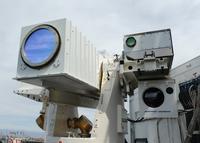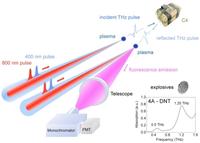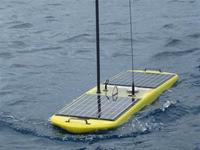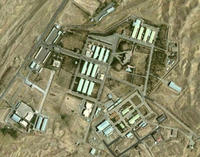-
Breaking news: Gunman kills 27, self, in Connecticut elementary school
A 20-year old Newtown, Connecticut man entered the Sandy Hook Elementary School in town and began shooting; police says that, so far, there are twenty-seven dead and scores of injured; among the dead are twenty students and six staff members; most of the students were killed in the classroom of the gunman’s mother, who was also shot and killed; police reports that so far it appears that there is only one person injured who requires hospitalization
-
-
High Russian official: Assad losing the ground war
The Assad regime does not have many friends left, and yesterday one of them admitted that Assad was losing the war; Mikhail Bogdanov, the deputy foreign minister of Russia, said the regime faced possible defeat to the rebels, adding with unusual frankness for a diplomat: “One must look facts in the face”
-
-
U.S. Navy scientists honored for significant portfolio of newly patented discoveries and inventions

U.S. Navy scientists and engineers in 2012 once again had the world’s most significant government portfolio of newly patented discoveries and inventions, according to a November report published by the Institute of Electrical & Electronics Engineers (IEEE)
-
-
Climate change, water shortage play only secondary role in causing conflict – at least so far
Intelligence services and militaries around the world have been talking about, and preparing for, the danger of “water wars” and about climate change as a threat to national security; the results of an EU-funded research project, however, found that such discourses oversimplify a complex reality; climate and water resource changes are important, but play only a secondary role — at least for the time being — in the causation of conflict and insecurity compared to political, economic, and social factors
-
-
Top U.S., Canadian officials meet to discuss quickening pace of Arctic changes

One manifestation of global warming is the accelerating pace of Arctic ice-cap melting; the U.S. Navy Arctic Roadmap, authored by the Navy’s Task Force Climate Change, notes that, “Because the Arctic is primarily a maritime environment, the Navy must consider the changing Arctic in developing future policy, strategy, force structure and investment”; top U.S. and Canadian officials meet to discuss the implications of the rapidly melting arctic ice
-
-
Syria military launches Scud missiles at rebels
Facing growing political isolation, deteriorating economic conditions, and military setbacks, the Assad regime is escalating the level of violence in its war against the opposition; the three latest weapons the regime used in its effort to hold off the rebels: Scud missiles, cluster bombs, and incendiary munitions; yesterday, Pakistan became the 69th country to close its embassy in Damascus
-
-
Technology emulates the Blind Cave Fish to help underwater vessels navigate with ease
Scientists have invented a “sense-ational” device, similar to a string of feelers found on the bodies of the Blind Cave Fish, which enables the fish to sense their surrounding and so navigate easily; using a combination of water pressure and computer vision technology, the sensory device is able to give users a 3-D image of nearby objects and map its surroundings
-
-
A new tool supports humanitarian demining

Landmines and other abandoned explosive ordnance are part of sad legacy of many conflicts; these devices can remain active during decades threating humans in the affected areas and depriving them of their lands and resources; today, a huge part of these tasks of humanitarian demining are still conducted by using hand-held detectors, particularly, metal detectors, though other detectors are being introduced gradually
-
-
Technique used to nab serial killers helps in controlling pests and disease and in counter-terrorism

A technique designed to help criminologists catch serial killers is being used by scientists to locate sources of disease, control pests, and study animal behavior; locating a serial killer’s home is similar to finding the nests of animals or centers of disease outbreaks; ecological approaches have applications in counter-terrorism work, as terrorist cells tend to have more than one anchor point within the area in which they operate, exactly so they can avoid detection
-
-
Terahertz waves for explosives detection

The chips generate and radiate high-frequency electromagnetic waves, called terahertz (THz) waves, which fall into a largely untapped region of the electromagnetic spectrum — between microwaves and far-infrared radiation — and which can penetrate a host of materials without the ionizing damage of X-rays; when incorporated into handheld devices, the new microchips could enable a broad range of applications in fields ranging from homeland security to wireless communications to health care, and even touchless gaming
-
-
Syrian rebels trained in handling, securing chemical weapons

The United States and some of its European have issues contracts to defense contractors to train Syrian rebels on how to identify, handle, and secure chemical weapons stockpiles in Syria; some of the training is done in Jordan, but some of the contractors are already inside Syria, where they, and U.S. intelligence operatives, are working closely with friendly rebel groups to monitor Syria’s chemical weapons production and storage sites
-
-
Detecting tunnels -- used to smuggle drugs, weapons, or people – is not easy
It seems reasonable to assume that it would be easy to use seismic waves to find tunnels dug by smugglers of drugs, weapons, or people, but this assumption is wrong; scientists are trying to get a better look at the ground around tunnels to learn why seismic data finds some tunnels but not others – and come up with a seismic detection process for the border and other areas where tunnels pose a security threat
-
-
Marine robot completes 9,000 mile cross-Pacific journey, setting new world record

A wave-powered robot completes a 9,000 nautical mile (16,668 kilometers) scientific journey across the Pacific Ocean to set a new world record for the longest distance traveled by an autonomous vehicle
-
-
Revamped DARPA inventor mentorship programs increases funding
DARPA says it wants to ensure that young scientists with novel ideas which may advance U.S. national security receive the funding and mentorship needed to investigate them; as the DARPA Young Faculty Award (YFA) program enters its seventh year, changes in scope mean that 2013 recipients can expect higher levels of funding — up to $1 million available for elite young researchers — for a potentially longer duration in a program that has been reworked to involve even more direct interaction with DARPA program managers
-
-
IAEA: Iran finished removing evidence of illicit nuclear work at Parchin

Iran, implausibly, may explain away its uranium enrichment activities by saying it needs the enriched material for civilian reactors and medical research (although the sheer quantities of uranium it enriches bear no relationship to either need); warhead design is done by a few engineers at secret locations; there is one activity – testing of the triggering mechanism for a nuclear bomb – that cannot be explained away (because these triggers do not have any other use) or hidden (because the testing leaves unmistakable traces); Iran has been conducting tests on a triggering mechanism for nuclear warheads at a military base called Parchin, south of Tehran, and has blocked access of UN inspectors to the site; detailed satellite imagery shows that Iran has been engaged in a frantic effort to scrub all evidence related to nuclear weapons testing activity at the military base by demolishing buildings and removing large quantities of soil that might hold traces of illicit nuclear work; the IAEA says that Iran has succeeded in its clean-up effort
-
More headlines
The long view
Why Was Pacific Northwest Home to So Many Serial Killers?
Ted Bundy, Gary Ridgway, George Russell, Israel Keyes, and Robert Lee Yates were serial killers who grew up in the Pacific Northwest in the shadow of smelters which spewed plumes of lead, arsenic, and cadmium into the air. As a young man, Charles Manson spent ten years at a nearby prison, where lead has seeped into the soil. The idea of a correlation between early exposure to lead and higher crime rates is not new. Fraser doesn’t explicitly support the lead-crime hypothesis, but in a nimble, haunting narrative, she argues that the connections between an unfettered pollution and violent crime warrant scrutiny.
Bookshelf: Smartphones Shape War in Hyperconnected World
The smartphone is helping to shape the conduct and representation of contemporary war. A new book argues that as an operative device, the smartphone is now “being used as a central weapon of war.”
